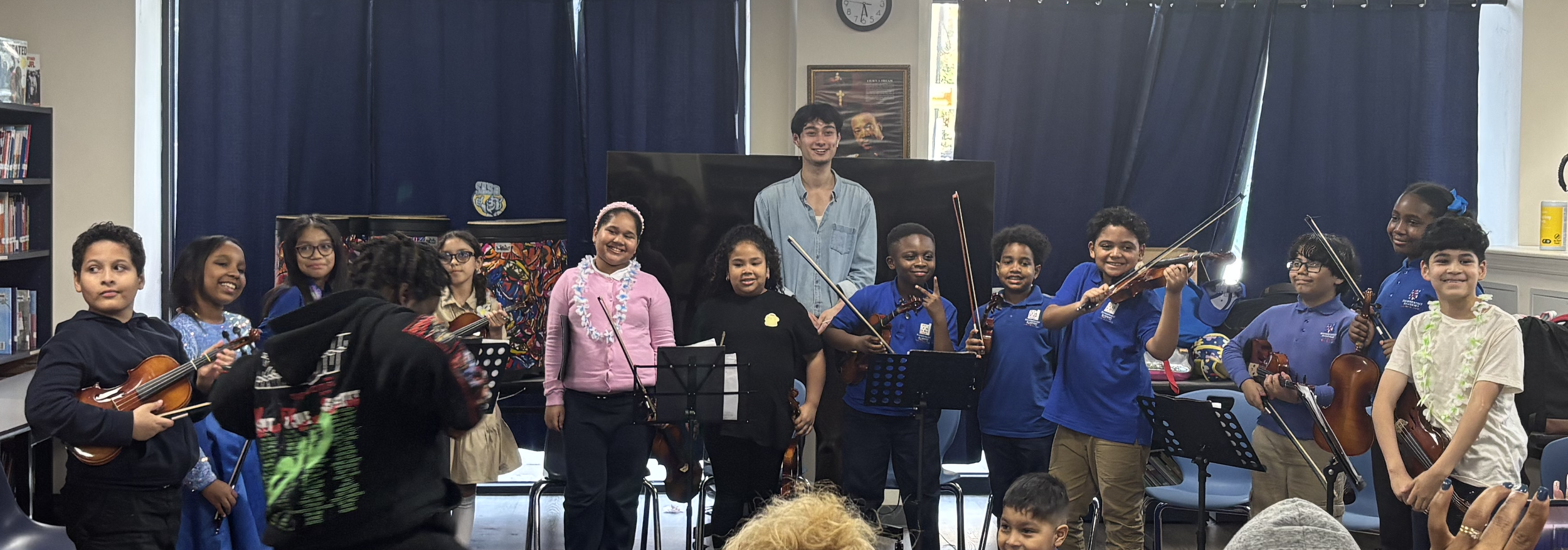TEACHING
STATEMENT ON MY TEACHING PHILOSOPHY
I believe that music, as human expression, is fundamentally shared. In the classroom, it is not the role of the teacher merely to disseminate the information of music to an unengaged audience of students; rather, it is the teacher’s role to foster the conditions in which students can explore their own feelings, thoughts, communities, and friendships, through the rich medium of active, collective music-making. Information is of course useful as is minimally necessary to facilitate this environment, but real learning and enrichment come when information dissolves into the background and collaboration takes the fore. When this occurs, students are empowered to confront their own self-expression, relationships, growth, and diversities in their own terms. Given the vast diversity of the world, and the individuality of people, students will always be able to teach themselves better than one could ever truly teach them. It is our job as teachers, then, to provide them with the environment and encouragement/incentive to undertake this self-teaching. Disruptive behavior, to me, is a manifestation of an unmet need, rather than an impulse that ought to be tamed. Pedagogical spaces (games) can be created such that needs of attention, belonging, identity, kinship, and more, are met through the expression of music and the participation in an activity or collective goal. It is also a responsibility of the teacher not only to anticipate these needs, but to adjust for them in real-time.
Teachers must also lead by example; they ought to embody that which they espouse. There is no quicker way to get students excited about music than to be excited yourself—visibly so, infectiously so. The same principles follow for qualities of compassion, patience, playfulness, curiosity, and any other qualities which endow students with the skills to navigate music and to navigate life. A great teacher is also a mentor and role model—in other words, a person in whom a student can recognize positive elements of themself.
To end this statement, I would like to express that inclusion and accessibility are core principles of my philosophies of teaching and of life. No person in our society—whether under-privileged, isolated, disabled, sick, young, elderly, incarcerated, or for any other trivial reason—should be bereft of the transformative power that music holds. Teachers must recognize that students have vastly different physical abilities, learning styles, cultural backgrounds, and musical goals. When building a long-term connection with students, it is crucial to discover each and every one of them as individuals. An ideal teacher knows their students not only as students, but as people, and with such knowledge, pedagogical decisions become second nature.
— Daniel Weitz
Storefront Academy in the Bronx, Violin Ensemble Semester 1, Final Concert | Photo © Taylor Royer
